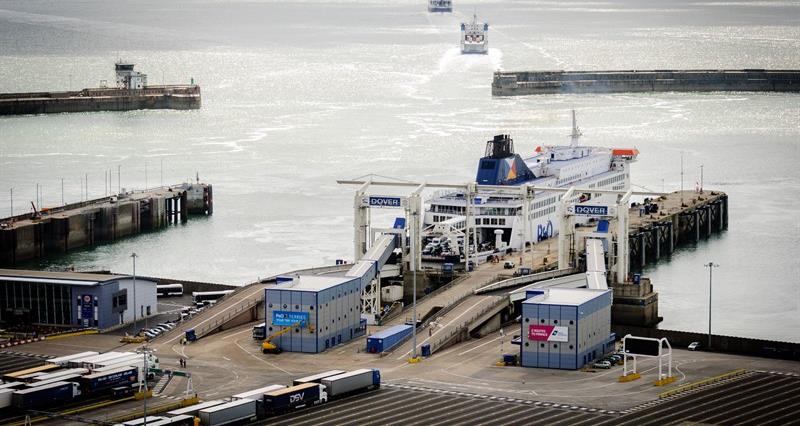With no changes made to fee levels since 2019/2020, the consultation compares the cost base in 2019/2020 to that in 2023/2024.
Between the two periods overall costs increased 141% from £6.6m to £15.9m. It’s estimated that inflation accounts for around 27% of the increase, but the majority is due to an expansion of APHA plant health services provided, including a 183% increase in staffing.
To achieve full cost recovery in each APHA scheme, the consultation proposes the following increases to fees would be needed:
Proposed increase in fees to deliver full cost recovery for APHA
| |
2023/2024, figures in £000s |
|
| Scheme |
Costs |
Income |
Shortfall |
Average fee change needed to achieve full cost recovery |
| Imports |
10628 |
4505 |
6123 |
27% |
| Exports |
4076 |
2774 |
1302 |
47% |
| SPCS (Seed Potato Classification Scheme) |
680 |
486 |
194 |
32% |
| Plant passporting |
414 |
329 |
85 |
26% |
| FPCS (Fruit Propagation Certification Scheme) |
54 |
21 |
33 |
53% |
| Scientific Authorisation |
116 |
59 |
57 |
79% |
| Total |
15968 |
8174 |
7794 |
|
The consultation proposes three options for increasing fees.
Option 1: Increase fees to achieve full cost recovery (as per the percentages given in the table above), from around autumn 2025.
Option 2: An inflationary increase to fees of 27.5% in Autumn 2025.
Option 3: A phased increase, with a 20% increase in fees around Autumn 2025, and a maximum 10% (could be lower) increase in fees in spring 2026.
The government’s preferred option is ‘Option 3’ – to provide the required fee increases while phasing the cost impact on industry over two stages.
A full breakdown of all the current and proposed new fees, by plant health scheme, and by category and description of plant, plant product or other object, are provided in Section 5 of the consultation document.
Additional changes
The government is also using the fees consultation and resulting amendments to the legislation as an opportunity to make the following additional changes:
- Increasing seed potato classification Scheme inspection fees so that they reflect the higher costs of prebasic versus basic crop inspections (pre-basic inspections take longer, as on average a greater area of crop is walked).
- Introducing a Fruit Propagation Certification Scheme application admin fee of £22, as APHA is doing this work previously done by a third party.
- Updating physical and identity import inspection fees to reflect changes to frequency of inspections for certain Rest of World goods (consulted on in May 2024).
- To reinsert the fees for checks of Triticum L., Secale L. and x Triticosecale, from certain third countries, following their removal in error from a couple of 2024 regulations (consulted on in May 2024).
Responding to the consultation
The Defra and the Welsh Government consultation is available online and closes on 21 March 2025.
The consultation asks for responses to four questions:
- Of the three options outlined, please indicate which would be your preferred approach?
- Do you know whether any businesses will be disproportionately affected by the proposed option (option 3)? Please provide details.
- Can you think of any likely unintended consequences resulting from the proposed option (option 3)?
- Can you think of any benefits or disadvantages arising from the proposed option (option 3)? Please provide details.
Defra is holding a series of online events to go through the plant health fees consultation in more detail, and provide stakeholders the opportunity to ask questions.
Details of these virtual events, and links to register to join are as follows:
These webinars will be followed by a face-to-face event in Peterborough on 6 March with a focus on imports, exports and plant passports.
NFU concerns
The NFU has some significant concerns about these proposed fee increases, not least because they come on top of other proposed changes to inheritance tax, Employer National Insurance Contributions and the National Living Wage, which are already putting huge financial pressure on growers’ businesses.
We know that these businesses, particularly within horticulture, are concerned they’re not going to be able to pass on those increased costs.
Most of the plant health fee increase proposed in this consultation is to cover the cost of additional government processes required because of the UK’s exit from the EU.
While we understand the principle of full cost recovery, we are concerned growers are being asked to shoulder additional costs for services at the border, when there are no agreements in place on the expected level of that service, and we hear that the border process is not always working effectively, with growers having to shoulder significant additional costs when these processes go wrong.
We are also thinking about what impact an EU reset would have on delivery of plant health services.
